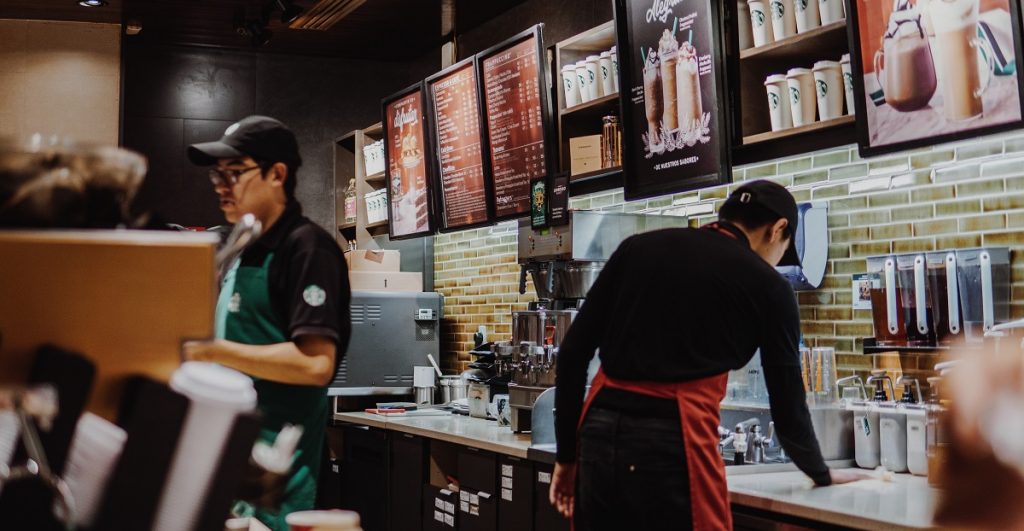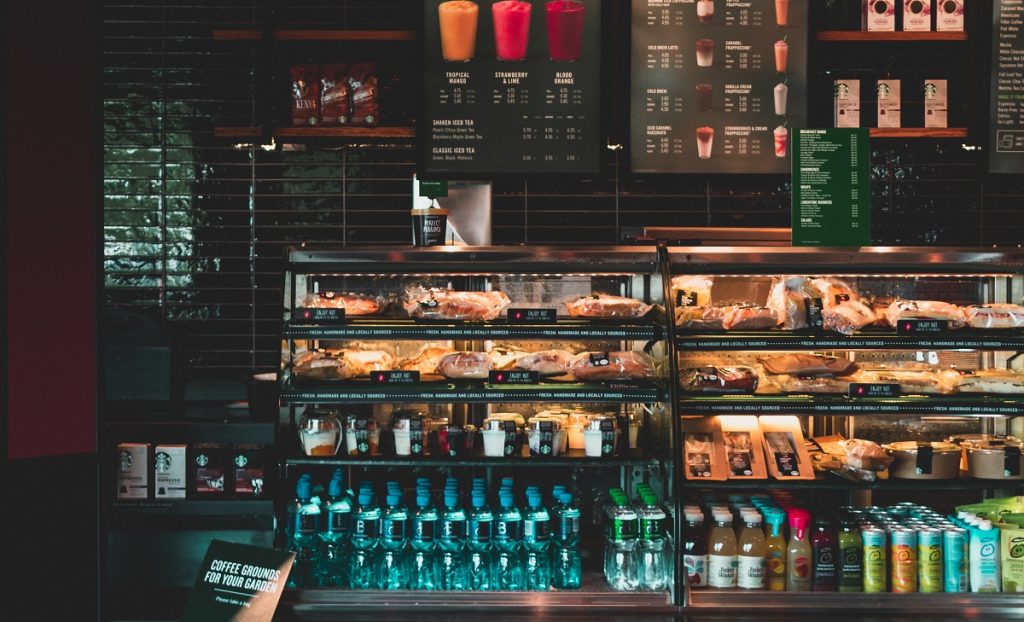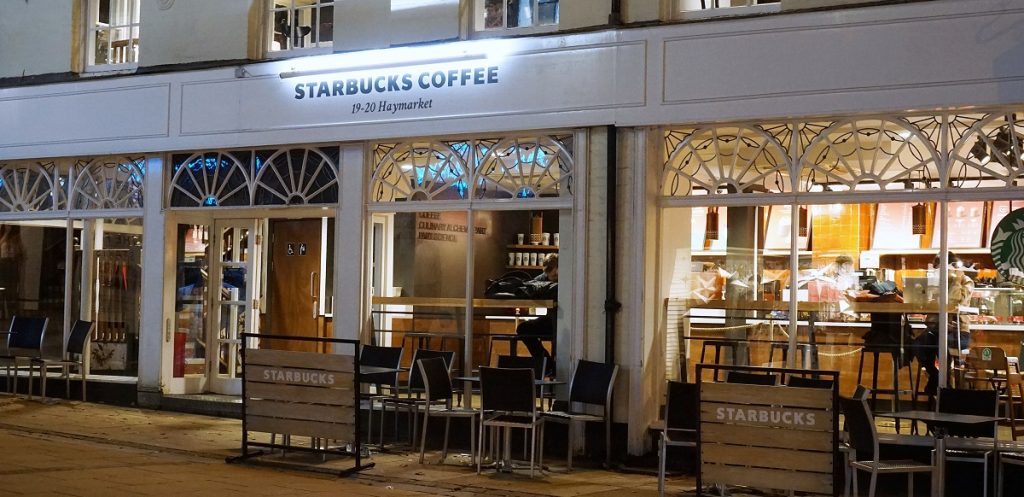Do you know that HR and hiring managers’ interview questions differ during job interviews? While hiring managers typically ask role-specific questions to assess a candidate’s competency, HR managers focus on cultural fit and value alignment. To excel in both aspects, it’s crucial to have a deep understanding of your strengths. This is where the HIGH5 strengths test can be invaluable. By identifying your top strengths, you’ll be better equipped to articulate your unique value proposition and demonstrate how your natural talents align with Starbucks’ needs. As we explore the essential skills and challenging interview questions for Starbucks employees, consider how understanding your strengths can give you a competitive edge in the hiring process.
On the other hand, the HR managers ask questions that help them to gather insights into cultural fit and if the applicant’s values are aligned with the company’s values.
With that in mind, we will share with you some essential skills that hiring managers are looking for when hiring a Starbucks employee. This article will also cover some of the most challenging interview questions you may get and tips on how to answer them.

You will also learn how to prepare for a Starbucks interview and intelligent questions to ask in the job interview.
What are employers and hiring managers looking for when interviewing people for a Starbucks employee?
Communication skills
As a leader in the customer service industry, Starbucks relies heavily on its customer-facing employees to maintain high brand loyalty. This means excellent communication skills are not just desired, but essential. Employees are expected to greet customers with a cheerful and optimistic tone, creating a welcoming atmosphere. Understanding your natural communication style is crucial in this context, which is where the HIGH5 strengths test can be particularly beneficial. By identifying strengths such as ‘Empathizer’ or ‘Storyteller’, you can leverage these talents to enhance your communication skills and create memorable customer experiences. Recognizing and developing these strengths can significantly boost your ability to connect with customers, ultimately contributing to Starbucks’ renowned customer service.
Aside from that, communication skills also include your ability to speak fluently without mumbling, facial expressions and body language. All of these reflect your passion and enthusiasm for serving your customers. In addition, it represents your willingness to provide the best service and meet customer needs.
Pronouncing your words using simple and easy-to-understand terms are techniques to create a good customer service experience.
Problem-solving skills
Problem-solving encompasses way more than merely responding to your customers’ questions.
It’s about going above and beyond to make them feel valued and unique.
Problem-solving refers to going the extra mile in addressing the customers’ problems or concerns. It means coming up with solutions and providing advice based on your experiences to help customers resolve their problems. For example, customers may need your help finding a specific item or recommending a drink to satisfy their coffee cravings.
Hiring managers are attracted to candidates who are willing to go the extra mile to help their customers have the best experience at Starbucks.
Accountability
In a hiring manager’s eye, how you address a customer’s problem is more critical than the solution you provide.
When you take ownership of things, you genuinely care for the customer’s problem and will do your best to help them solve it. You will not find excuses or push the blame away if something goes wrong. Instead, you will take responsibility and apologize for the mistakes made. Then, come up with a solution to solve the issue.
Organizational skills
Strong organizational skills refer to your ability to efficiently manage your time and stay focused on what’s important about the work you do, stay focused. In addition, you need to be able to prioritize your tasks and maintain structure throughout your workday.
The work environment in the service industry is fast-paced and challenging. So, hiring managers want employees capable of completing their responsibilities with minimal supervision.
Soft skills
Soft skills, particularly empathy and active listening, are cornerstone abilities that hiring managers seek in the service industry. These skills form the foundation of exceptional customer service, and without them, other customer service skills lose their effectiveness. Recognizing the importance of these soft skills, tools like the HIGH5 strengths test can be instrumental in identifying and developing them. For instance, if the test reveals ‘Empathizer’ or ‘Listener’ as top strengths, you can confidently highlight these during your Starbucks interview. Moreover, understanding your unique strength profile allows you to articulate how you’d apply these soft skills in various customer service scenarios, demonstrating to hiring managers your readiness for the role and your alignment with Starbucks’ customer-centric approach.
Empathy refers to your ability to recognize another person’s feelings and perspectives. In other words, if a customer complains that they are being mistreated, you, as the employee, can demonstrate that you are aware of what they say or how they feel.
Knowing how to empathize allows you to find a solution that will make your customers feel better. As a result, you will make your customers feel you understand them. They are then more likely to revisit your shop and share the exceptional service they experienced with others.
Effective listening, on the other hand, refers to wanting to understand a customer’s problem better. Therefore, it is a crucial skill and mentality to address customers’ issues effectively.
Listening skills are essential to ensure you respond appropriately to customer requests. Effective listening skills enable you to understand the intricacies of the situation and make the customers feel heard.
Adaptability
Adaptability is another essential skill that hiring managers look for in the service industry. The customers you meet and the problems you face can change depending on the situation. And if you are not flexible to change, you may be unable to satisfy the customers’ needs or the expectations of the job.
Flexibility means you can adapt to changing circumstances and customer demands. You will face customers from all walks of life with different personalities and demands. So being flexible means having the ability to tailor your approach to satisfy the demands of your customers.
Stress resistance
Being stress-resistant means having the ability to stay calm and composed in the face of adversity. One typical example is dealing with an upset customer.
During such a confrontation, maintaining your composure is critical. It can be the difference between calming the customer down and enraging them further. However, remember that other customers are watching how you manage this situation. Therefore, maintaining your cool in these situations will leave a positive impression on the angry customer and other customers.
Conflicts are unavoidable in customer-facing roles. We all know that dealing with disagreements is never easy. Suppose you lose your composure in these stressful situations. It may result in a bad customer experience.
In these situations, the last thing the hiring manager wants to see is you lose your composure or control. The hiring manager wants someone who is always alert and can remain calm in such situations.
16 Starbucks Interview Questions with Sample Answers

1. Tell me something about yourself.
This is one of the most common questions interviewers ask at the beginning of an interview. Interviewers ask this question to find out more about you that isn’t shown in your submitted resume. To prepare for this question, you can start by writing a script of what you plan to say. Start by focusing on your relevant job experience.
Describe what you accomplished in your previous job role. Consider sharing two or three specific examples of your experiences that relate to the position you’re applying for. Try to define and relate your examples to a tangible result. For instance, saving time, reducing costs, increasing productivity, etc.
By sharing your past job experiences and strengths, you are letting the interviewer know that they found the right candidate for this role in you.
Here are additional tips that you can use while preparing for this question:
- Refrain from repeating what is already stated in the resume. Interviewers ask this question because they are curious about what they haven’t seen on your resume.
- Start by introducing yourself using specific words that best describe you, such as proactive, diligent, quick learner, etc.
- Use this opportunity to emphasize why you want this job and your suitability for this role.
2. How well do you know about Starbucks?
Here are some facts about Starbucks’ history that you can remember if this question pops up in your interview.
- Starbucks was founded in 1971 in Seattle.
- Starbucks is well-known for its high-quality coffee, tea, frappuccino, and foods such as sandwiches, bakeries and cakes.
- They purchased Seattle Best Coffee in 2003.
- In 2009, they introduced VIA instant coffee.
- For frequent customers, there is a loyalty program called My Starbucks Reward card. Loyal clients may use this card to enjoy complimentary beverages, meals, and other items.
- Their mission statement is ‘to inspire and nurture the human spirit – one person, one cup, and one neighborhood at a time.’
3. Why do you apply for a job at Starbucks?
This is another common question posed by interviewers to ensure that you understand the job criteria. Your answer to this question will also assist the interviewers in learning why you decided to apply for this position. Hence, you should frame your answer in a way that can convince the interviewers that you are the best fit for the role. Here are some tips to help you prepare for this question:
- Mention how your previous work experiences are relevant to the current job.
- Share your career goals and how this job will move you towards achieving your goals.
- Understand the company’s goal, mission, and recent work that encouraged you to join the team.
4. Can you tell me about your strengths?
When addressing this crucial question, confidence in your skills is key. However, true confidence stems from self-awareness and understanding of your unique strengths. This is where taking the HIGH5 strengths test before your interview can be a game-changer. By identifying your top five strengths, you’ll be equipped with concrete, data-backed insights about what you naturally excel at. For instance, if the test reveals ‘Problem Solver’ or ‘Empathizer’ as your top strengths, you can confidently articulate how these align perfectly with Starbucks’ customer service ethos. This approach allows you to not just sell yourself, but to present a compelling, authentic case for why you’re the ideal candidate. Remember, interviewers aren’t just looking for skills, but for individuals who understand how their unique strengths can contribute to the Starbucks team.
Here is what you can do:
- Speak confidently about your strengths. But do not oversell yourself by using superlatives and boasting about your achievements. Remember, don’t exaggerate your strengths.
- Make your point using anecdotes. Support your strengths with real-life examples.
- Be honest and focus on the strengths that are a good match for the role. Do not talk about the strengths that you do not have.
5. Can you tell me about your weaknesses?
Again, be honest. We are all human beings, and nobody is perfect. So, do not tell the interviewers that you have no weaknesses. Or give answers like you’re a perfectionist, or you work too hard. Instead, you can share with the interviewers the area you are working on improving right now.
One trick to answering this question is highlighting a weakness that is not critical for the position. You can also share with the interviewers the steps you have taken to improve this weakness.
Show them that you are open to learning and improving yourself. Also, discuss how you’ve made efforts to improve this weakness, demonstrating your capacity and drive to learn and progress continuously. Remember, never tell interviewers your weaknesses that might undermine you.
6. Tell me about a time you dealt with an angry customer.
Interviewers ask you this question to understand how you handle a challenging situation. Facing an angry customer is unavoidable, especially working in the service industry. So, interviewers want to see if you can resolve such a situation.
You can answer this question by following the tips below:
- First, allow the customer to vent their anger or frustration while you listen attentively.
- Demonstrate empathy by showing the customer that you care and want to solve their complaints or problems.
- Refrain from blaming the customer or the company regardless if you are right or wrong.
- Apologize sincerely, and what can you do to help them feel better?
- Attempt to address the issue yourself. If not possible, reach out to someone more senior.
- Do not make empty promises.
- Most importantly, don’t take the customers’ attitude and behavor personally.
7. Where would you like to be in your career in five years?
The main intention of asking this question is to determine how long you intend to stay with the organization. Another reason is to see if your career goals and aspirations align with the company’s mission.
Here are some tips to prepare for this question:
- Describe how your career plan matches the company’s
By now, you should already know about Starbucks’ values and mission. So all you need to do is identify key points from the mission statement that resonate with you and your career aspirations. Then, you can highlight how you want to develop in that area in the next few years.
- Exhibit passion and enthusiasm for your career goals
Interviews are keen to hire employees with the passion and desire to advance in their careers. You may want to become a store manager 5 years down the road. Share how this position can be your stepping stone to achieving your ambition.
- Demonstrate an interest in continuous development
Discuss an area which you would like to develop in this job position. For example, it may be a skill you think is necessary to learn to be promoted to the position you want. Or an area of business that you need to familiarize yourself with. Show the interviewers your desire to learn and upskill yourself to become better.
8. Why should I hire you?
You may think that asking this question is to understand what you want, but it’s not. While your career goal is essential, the interviewers are more interested in how you can add value to this job and the team.
To prepare for this question, it’s incredibly vital that you’ve read through the job description. A job advertisement has information about the role you’re applying for. It includes not only job responsibilities and requirements and the skills required for the position.
You can then frame your answers based on what they are looking for in a candidate. Next, identify two to three skills you would like to elaborate further and showcase to the interviewers.
Read up on anything you can find about the company’s goals, latest news and press releases online. It can be from their LinkedIn profile, Instagram page, news outlets or company website.
What are the challenges that they are facing? Where do they see themselves in the next few years? What strengths or skills can you bring to the table to help them get there?
9. Are you okay with working overtime or odd hours?
Interviewers are always keen to hire employees who are flexible in terms of their working schedules. Inform the interviewers that you are willing to work extra hours during weekends or the festive season. These are usually peak seasons when there will be a lot of customers.
10. What does motivation mean to you?
This is another question that candidates may potentially misinterpret. When answering this question, you have to be as honest as possible. Make sure your answer is relevant to the position you are interviewing for. You can provide an example to ensure the message you want to convey to the interviewer is correctly understood.
11. What animal would you like to be if given a choice?
When answering this question, give a rationale behind the animal you choose. And the explanation needs to be relevant to the role you are applying for.
Avoid picking animals with unfavorable characteristics or are opposite of the traits required for the job position.
Below are some examples of animals and their qualities for your consideration:
- Lion: Courageous. Never back down from what they stand for.
- Dogs: Loyal. Outgoing and
- Elephant: Affectionate and exude calmness.
- Dolphins: Highly sensitive and intelligent. Has a high level of empathy and prefers living in harmony and peace.
- Bee: Organized and efficient. Works as a team to achieve a goal.
- Ant: Hardworking and possessing a strong work ethic. Similar to bees, they work as a team.
12. What salary are you expecting?
This is one of the most challenging and sensitive questions to answer. To prepare, research online to see the average wage for the role. You can visit reputable websites like Glassdoor, Payscale, and Salary.com.
Another good way of answering this question is by flipping the question back to the interviewer. Your response can be like this: ‘ Can you share the salary expectation range for this role?’ Then, you can reply by giving them the higher end of the salary range.
But, do note that most entry-level positions are usually around the minimum wage level. Lastly, don’t just give the interviewer your expected salary range. Instead, share why you think you deserve to be paid that much.
13. Are you comfortable with standing for long hours?
Most F&B companies expect their employees to stand for extended periods. Let your interviewer know that you have no issue with working long hours. Make sure that you are wearing comfortable and well-fitting shoes. Do some stretches during your break time and keep yourself hydrated.
14. What is the definition of excellent customer service in your own words?
Here are some key points of what it means by ‘excellent customer service:
- Fast service without making customers wait too long for their order
- People-first attitude
- Extensive knowledge of the products and services
- Clean and well-maintained restaurant inside and out
- Take customers’ orders with care and minimal mistakes
15. What is your attendance rate in your previous job?
Honesty is the best policy when answering this question because interviewers may do a background check on you. In addition, they may verify the information that you shared with the references you submitted.
Highlight to the interviewer that you understand the importance of punctuality.
16. Do you have any questions for us?
You will always receive this question from interviewers at the end of the interview. To answer this question, avoid asking questions that have been answered earlier during the interview.
Please also avoid close-ended questions in which the interviewer can answer “yes” or “no”. Instead, ask questions you are interested to know more about the team, job role or company. It may be your only opportunity to clarify any concerns or questions.
Pro Tip From HIGH5
When discussing your strengths in the Starbucks interview, go beyond simply listing them. Instead, use the STAR method (Situation, Task, Action, Result) to illustrate how you’ve applied your HIGH5 strengths in real-life scenarios. This approach not only validates your strengths but also demonstrates your ability to leverage them effectively in work situations, which is exactly what Starbucks is looking for.
Questions for You to Ask in a Starbucks Interview
Your interview is proceeding smoothly. You’ve confidently answered every question posed by the recruiter. As the interview draws to an end, the interviewer will ask you, ‘Do you have any questions for me?’

Remember always to say yes! One common mistake candidates usually make telling the interviewer, “No, you’ve covered everything.”
Prepare at least three or four questions to ask the interviewer at this stage. That way, you will have backup questions to ask if some of the questions you prepared are addressed earlier.
The questions you ask may indicate how interested you are in this job position. Interviewers can sense if you are genuinely passionate about the job through the questions you ask. So make sure you ask questions that show how much you desire to be a part of the team. It also gives you the last opportunity to emphasize your relevant skills and expertise.
Below are several quality questions that you can consider asking your interviewer:
- How long does the hiring process take for this role?
- Please tell me more about the person I will be reporting to.
- Are we required to go through any new hire training?
- How long is your performance review cycle?
- Can you share about the management style or working culture of the team I would be working in?
- What makes up an ideal candidate for this position?
How To Prepare for a Starbucks Interview
Effective preparation for a Starbucks interview goes beyond just researching the company; it involves aligning your unique strengths with Starbucks’ priorities and goals. A powerful way to achieve this is by taking the HIGH5 strengths test as part of your preparation. This assessment not only helps you identify your top five strengths but also provides insights on how to articulate them in the context of Starbucks’ values and needs. For instance, if your strengths include ‘Achiever’ or ‘Empathizer’, you can frame your responses to highlight how these align with Starbucks’ commitment to excellence and customer service. By understanding and leveraging your strengths, you can more effectively ‘speak Starbucks’ language’ during the interview, demonstrating not just your skills, but how your natural talents make you an ideal fit for their team.
To do this, you can start by analyzing the job description of the Starbucks role you are applying to. Then, look out for the “must-haves list” section. This section usually has the essential requirements that the hiring manager looks for in a candidate. If you can demonstrate that you have all or most of the requirements listed there, your chances of getting selected will increase.
Typically, visiting a company’s official website will teach you a lot about the company’s culture. So, begin by visiting the Starbucks website and reading through its values, vision and miss statements. These statements represent the company’s direction and aspirations.
The next thing you can do is visit the company’s social media accounts. You can find the company’s social media account by searching the company name on the respective social media platform or finding the link to their accounts on their website.
Sometimes, you get to learn about the company’s culture and employer branding by reviewing Starbucks’ social media accounts. Companies usually use their social media accounts to showcase their successes, the latest happenings and other activities.
After you’ve completed your research on Starbucks, you can start putting your findings to use. You can start by framing your answers that relate to Starbucks’ values or mission.
Here are a few interview tips to get you started in preparing for your Starbucks interview:
- Go to Starbucks Interview and Resume Tips page to learn more about Starbucks’ interview process.
- If you have time and like reading, you can read the book, Onward by Starbucks’ founder and leader, Howard Schultz. You can learn about the remarkable story of how Starbucks made a comeback from the brink of bankruptcy. In the book, he shared how he led Starbucks to restore its financial health and bring the company back to its core values.
- Share about your experiences visiting a Starbucks coffee shop. You can highlight the amazing customer service you experienced and your personal connection with the barista. You can also express how much you enjoyed stepping into a Starbucks surrounded by the scent of high-quality coffee aroma.
Pro Tip From HIGH5
As part of your Starbucks interview preparation, create a ‘strengths map’ that aligns your HIGH5 strengths with Starbucks’ core values and job requirements. For each strength, identify specific ways it can contribute to excellence in the role you’re applying for. This exercise will help you articulate your value proposition more clearly and confidently during the interview, showing the interviewer that you’ve thoughtfully considered how your unique strengths can benefit Starbucks.



